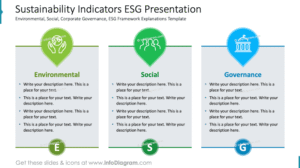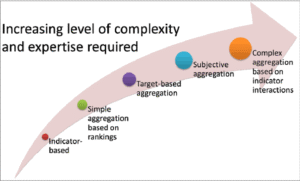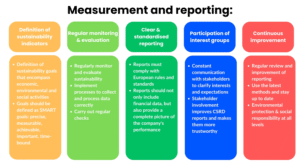Back to: Environmental Biology 500 Level
Welcome to class!
Hello, my wonderful learner! It’s great to see you again—focused, curious, and committed to making a difference. You’ve come so far in understanding how we assess and manage environmental impacts. Today, we’re looking at something that helps us measure progress and know whether we’re truly protecting the environment and improving people’s lives. Our topic is Sustainability Indicators and Reporting—a powerful way of tracking how well a project, community, or country is doing in terms of sustainable development. Let’s go into it together, in a simple and meaningful Nigerian way.
Sustainability Indicators And Reporting
What Are Sustainability Indicators?

Sustainability indicators are measurements or signs that help us track environmental, social, and economic progress over time. They tell us whether our actions and policies are leading towards long-term wellbeing for both people and the planet.
Think of them like the dashboard in a car. The speedometer, fuel gauge, and engine light tell you how your car is doing. Similarly, sustainability indicators tell us how our communities or projects are performing in areas like clean air, education, health, biodiversity, and job creation.
Types of Sustainability Indicators
Environmental Indicators
Air quality levels (e.g., PM2.5 concentration)
Water quality (e.g., pH level, presence of pollutants)
Deforestation rate
Biodiversity levels (number of endangered species)
Social Indicators
Access to clean water and sanitation
Health outcomes (like child mortality or disease rates)
Education level or literacy rate
Community participation in decision-making

Economic Indicators
Employment rate
Income distribution (e.g., poverty levels)
Access to electricity or infrastructure
Economic growth balanced with environmental care
Why Are Sustainability Indicators Important?
Measure Progress: They show whether a policy or project is truly benefiting the people and environment.
Inform Decision-Making: Leaders, businesses, and communities use indicators to guide actions and improve planning.
Promote Accountability: Indicators hold organisations and governments responsible for promises and results.
Encourage Transparency: By sharing indicator data publicly, everyone can see what’s working and what needs improvement.
What is Sustainability Reporting?
Sustainability reporting is the process of collecting, analysing, and presenting data from sustainability indicators in a formal report. It gives a clear picture of how a company, government, or project is performing in terms of environmental, social, and economic goals.
Example:
The Nigerian National Petroleum Corporation (NNPC) or a multinational company like Dangote Group may publish an annual Sustainability Report showing how their operations affect the environment, how many jobs they create, their waste management efforts, and how they engage with communities.
International and Nigerian Context

Globally, frameworks like the United Nations Sustainable Development Goals (SDGs) use indicators to track progress across countries. In Nigeria, organisations like the Federal Ministry of Environment, National Bureau of Statistics, and NESREA monitor and report on sustainability indicators, especially in sectors like oil and gas, agriculture, and urban planning.
Summary
- Sustainability indicators help measure how well we’re protecting the environment and improving lives.
- They include environmental, social, and economic indicators.
- Sustainability reporting involves sharing this information through formal reports.
- These tools guide decision-making, promote accountability, and encourage responsible development.
Evaluation
- What are sustainability indicators?
- Give two examples each of environmental and social indicators.
- Why is sustainability reporting important for companies and governments?
- Mention one Nigerian organisation involved in sustainability reporting.
Fantastic work today! By understanding indicators and reporting, you’re learning how to measure real progress and drive meaningful change. The future of Nigeria and Africa needs bright minds like yours—focused on data, truth, and results. Keep pushing forward. Afrilearn is proud of you, and we’ll be right here for your next breakthrough. See you in the next class, sustainability champion!
